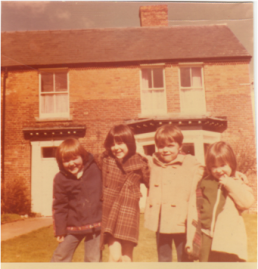You’ve spent months, years, cramming stolen hours into your manuscript. You’ve floated around at work, down the shopping aisle, at long-overdue family reunions, glassy-eyed and dreaming of the day your novel hits the best seller lists (even though you tell everyone you wrote it only for the love of writing).
Finally, you send your manuscript off to that perfect publisher, the one you know is your match, they published that other book that’s similar to yours but nowhere near as exciting. You wait eagerly for weeks, unable to think of anything else and, finally, a response arrives rejecting your manuscript on the basis that ‘whilst strong in plot and imagery, is not quite up to the professional standard necessary for publication.’
It’s not an easy thing, handing our pride and joy over to someone we barely know only to have it handed back smeared in squiggly, red lines and crosses. After all, ‘Asking a writer what he thinks about criticism is like asking a lamp-post what it feels about dogs’ (John Osborne). Yet as we writers know, criticism is part of the job.
So – it’s time. I need an outside point of view. Some professional guidance. I’ve exhausted my family enough. My turn at writer’s group is weeks away and, even then, I can’t submit the mountain of pages I need help with.
But what kind of edit do I need? The SFWA (Science Fiction and Fantasy Writers of America) provide a helpful explanation of the different types of editing services available on their website.
Here’s a section from their page:
- Manuscript assessment or critique. A broad overall assessment of your manuscript, pinpointing strengths and weaknesses. Specific problem areas may be flagged, and general suggestions for improvement may be made, but a critique won’t usually provide scene-by-scene advice on revision.
- Content editing (also known as developmental or substantive editing) focuses on structure, style, and content. The editor flags specific problems–structural difficulties, poor pacing, plot or thematic inconsistencies, stiff dialogue, undeveloped characters, stylistic troubles, flabby writing. The editor him/herself may rewrite the ms. to fix these problems, or may provide notations and detailed advice so the author can address them.
- Line editing. Editing at the sentence level, focusing on paragraph and sentence structure, word use, dialogue rhythms, etc., with the aim of creating a smooth prose flow.
- Copy editing. Correction of common errors (grammar, spelling, punctuation), incorrect usages, logic lapses, and continuity problems.
- Proofreading. Checking for typos, spelling/punctuation errors, formatting mistakes, and other minor mechanical problems.
It’s important to have a clear understanding of what you want from a professional edit. If you already have an experienced mentor you may need a simple copy-edit or proofread. If, like me, you’re in need of that extra professional opinion, you want to improve pace, structure and identify character weaknesses, you may need to pay for the full content edit.
Jane Friedman claims in her article, Should You Hire A Professional Editor? ‘Most writers don’t clearly understand how an editor might improve their work (or to what extent). Writers must have a level of sophistication and knowledge about their work (or themselves!) to know where their weaknesses are, and how a professional might assist them. When writers ask me if they should hire a professional editor, it’s usually out of a vague fear their work isn’t good enough—and they think it can be “fixed.” There are many different types or levels of editing, and if you don’t know what they are—or what kind you need—then you’re not ready for a professional editor.’
She goes on to say, ‘Writers may sincerely seek professional help, but very few are willing to pay for it. You probably will not receive a quality review on your entire manuscript—that will actually affect your chances of publication—for less than $1,000 USD —unless it’s line editing (copyediting, proofreading).’ To read the whole article, click here.
So, it appears, I may need to apply for a third job.
I’ll need to find an editor I respect. They’ll need experience in my genre – and with my target audience. They’ll need excellent references and testimonials from clients. They’ll need to offer the service I require. I may even ask them for a sample edit to see if they’re a good match. It’s a lot of money, so I may as well do the research to make sure I get the service I want. The Editorial Services section of 2013 Writer’s Market lists over 500 entries, many of which provide some kind of critique service.
I know they can’t perform miracles – that part is up to me. But I need that other set of eyes, those ones with years of experience in the publishing industry to help me make this novel the best it can be. $1,000 USD is a little on the steep side, so I may need to find a compromise.
What are your views on the professional edit/critique? Have you ever hired an editing service for your manuscript? Did you find it helpful?







